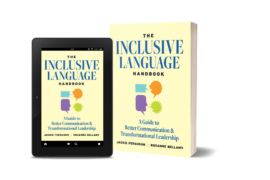As a past president of the International Academy of Mediators, our organization has been tackling diversity for well over a decade. However, I have recently been having broader thoughts about diversity. Frankly, Florida Gov. Ron DeSantis’s ban of a high school AP African American studies course has reminded me it is time once again for activism.

I appreciate, having lived in the real world for 71 years, that a portion of the world population does not embrace the concept of diversity. I also would like to believe, since mediators are generally optimists, that the majority of the world’s citizens either like or embrace diversity, at least conceptually.
This raises the question: Is embracing diversity as a concept enough? I believe the answer is a resounding “No!” A true embrace of diversity requires action.
But which actions? Many who embrace diversity have no clear idea how to support the cause. In this situation, allyship should be the first step. Let’s look at a variety of real-world situations and consider the risk-benefit of being an active ally.
Suppose in a mediation, a party to a commercial dispute in a private room uses racial epithets derogating Black people in front of the mediator. Assume the mediator embraces diversity and inclusion. What does the mediator do? The mediator is obligated to be impartial. Does the mediator remain silent and proceed with the job they are paid to do? Or does the mediator speak up and politely request that the party refrain from using such language, even if it risks escalating the mediation?
I believe silence is not an option. Silence implies acquiescence or, worse, agreement. Risking a potential loss of business must be a necessary component of true allyship.
Let’s take another example. You are a member of an exclusive club that has failed to promote women or members of color to executive leadership. You value your historic membership, you sit on the board, and you believe there are women and members of color who are qualified for leadership positions. When the board fails to even consider such members, do you remain silent? Or do you politely raise the issue of more diverse leadership, nominate such a candidate, and potentially risk your stature on the board and your status in the organization? Once again, I insist that you must speak up if you genuinely embrace diversity and intend to be a true ally.
I could provide countless other examples, but let me share a personal story instead.
Thirty years after its release, I recently watched Schindler’s List. I was reluctant to watch it because my aunt was an Auschwitz survivor, 60% of my extended family had been murdered by the Nazis, and my father even had his name changed so he would not be readily identified as Jewish. All excuses, not good reasons, to avoid watching the film. Truth be told, I was afraid to watch the inhumane treatment of my people, simply because of who they were when they were born.
Schindler’s List is certainly about the horrors of dehumanizing people and survival. It’s also about the impact of silence – when well-minded people observed the horror and failed to speak up.
And it’s also about Oskar Schindler, a German industrialist and member of the Nazi party, who thought it was a good idea to use Jewish prisoners in his ceramics plant as workers. At first, the idea was only about money for Schindler. He was a playboy, liked to cavort and party with the German elite, and believed wrongly that the Nazis didn’t really want to kill for killing’s sake. As the film progresses, Schindler begins to grow closer to his Jewish workers. Then, one day, he observes the Nazis emptying the Jewish ghetto and randomly killing Jewish men, women, and children. Schindler then becomes aware that the Nazis are shipping Jews to the Auschwitz death camps, and his workers will suffer the same fate. So, Schindler creates a list of almost 1,200 Jewish people, and through bribes, enormous financial loss, and potentially a shot in the head, saves them from that fate. Today, there are over 7,500 members of the extended Schindler Jewish family who are alive. Schindler was an ally in the truest sense. What did Schindler risk? Everything.
Diversity, and furthermore, inclusion, requires action. To be an ally requires speaking up despite the risk. Silence is not an option. With books being removed from libraries and high school courses being banned, I find this frighteningly familiar. This is a call to action indeed.
Eric Galton, a licensed attorney in Texas, is the Co-owner of Lakeside Mediation Center. He has been a full-time mediator for nearly 30 years, having mediated over 7,500 disputes throughout the US, primarily in Texas. Eric served as an adjunct professor at University of Texas School of Law for eight years and continues to serve as an adjunct faculty member at Pepperdine School of Law. He has published five books about mediation and travels nationwide teaching the course he developed entitled Restoring Civil Discourse in an Overheated Society.






